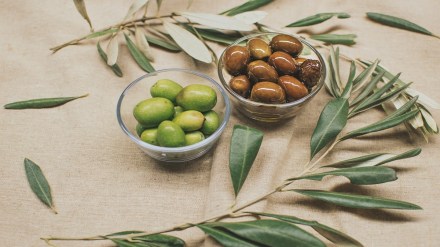The benefits of olive oil are well-known. But did you know that the leaves of olives are also filled with nutrition? Studies from recent review suggest that olive leaves have numerous benefits.
In the Mediterranean, olive leaves have traditionally been brewed as a tea and drunk to treat fever and malaria. According to a report in Science Alert, the leaves contain high levels of a type of antioxidant called oleuropein. Interestingly, olives and olive oil contain this too, but at lower levels.
Olive leaves also contain other antioxidants such as hydroxytyrosol, luteolin, apigenin and verbascoside. A review and analysis combined data from 12 experimental studies with 819 participants in total. Overall, olive leaf extract improved risk factors for heart disease and this included healthier blood lipids (fats) and lowering blood pressure.
According to the report by Science Alert, the effect of Olive leaves was greater for people who already had high blood pressure. Most studies in this review gave olive leaf extract as a capsule, with daily doses of 500 milligrams to 5 grams for six to 48 weeks.
Some of these studies involved people with high blood lipids, people with high blood pressure, people who were overweight or obese, and some involved healthy people. Daily doses were 250-1,000mg taken as tablets or baked into bread, Science Alert reported.
Another review looked at people who took oleuropein and hydroxytyrosol which is the antioxidants present in olive leaves. This found significant improvement in body weight, blood lipid profiles, glucose metabolism and improvements in bones, joints and cognitive function.
How to consume olive leaves?
Olive leaves can be brewed into a tea, or the leaves added to salads. Others report grinding olive leaves into smoothies. As the leaves are bitter, it is hard to eat. Olive leaf extract has also been added to bread and other baked goods. There has been no report hinting that olive leaves are bitter.
It appears safe up to 1g a day, according to studies that have used olive leaf extract. However, there are no official guidelines about how much is safe to consume.
There have been reports of potential toxicity if taken over 85mg/kg of body weight per day. For an 80kg adult, this would mean 6.8g a day, well above the dose stated in the studies. Meanwhile, pregnant and breastfeeding women are recommended not to consume it as it is not known if it is safe to consume them.
